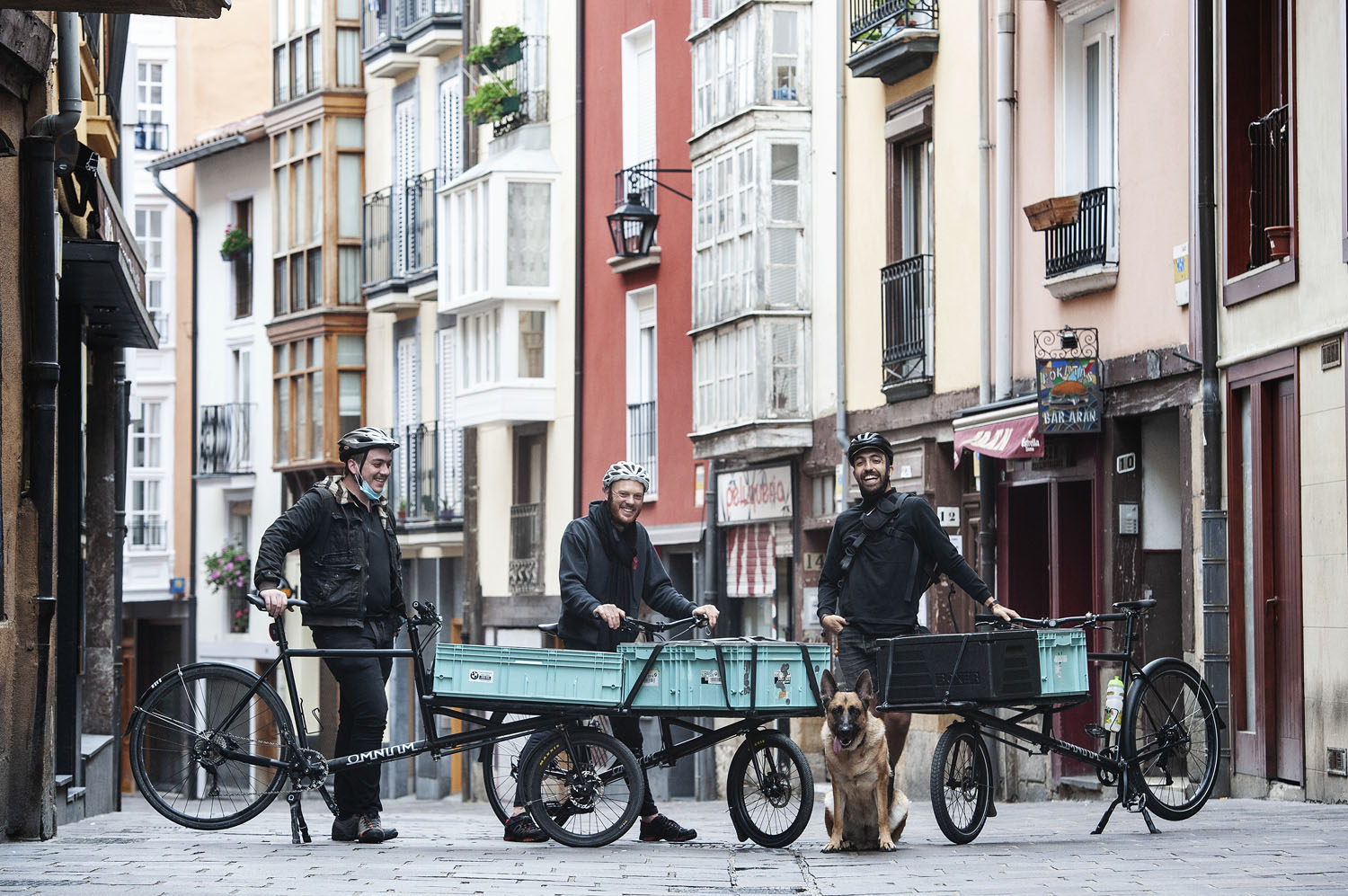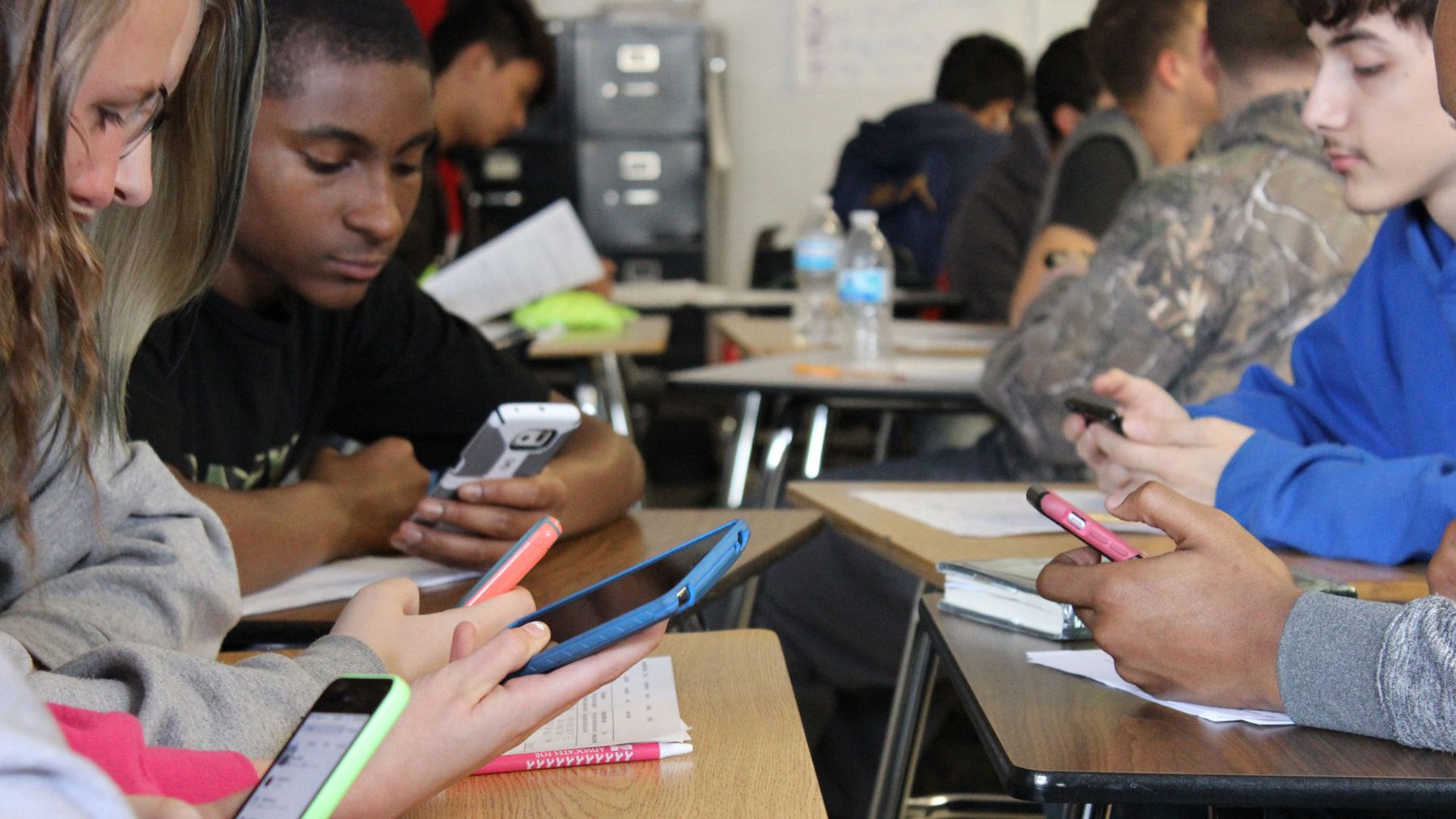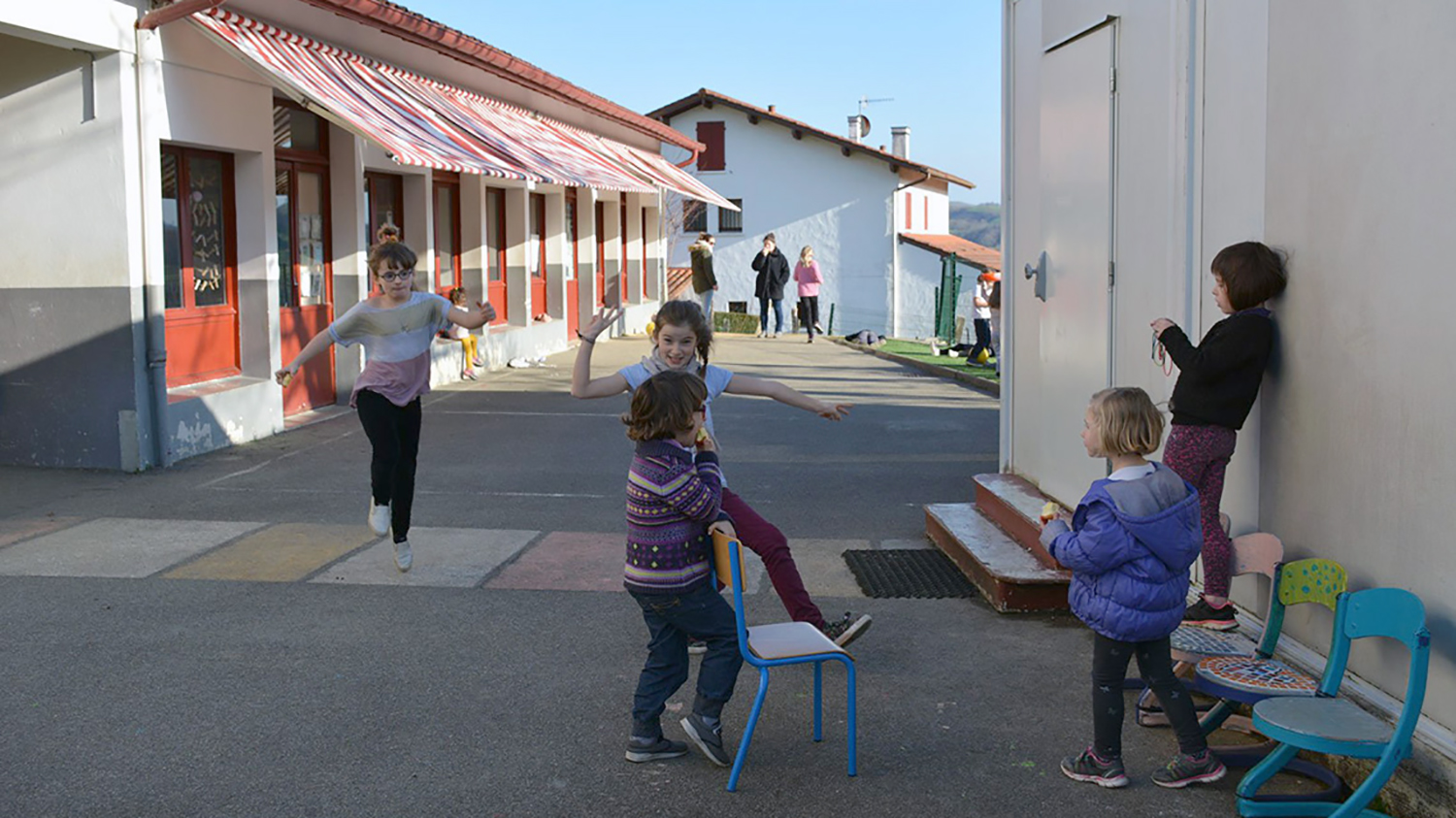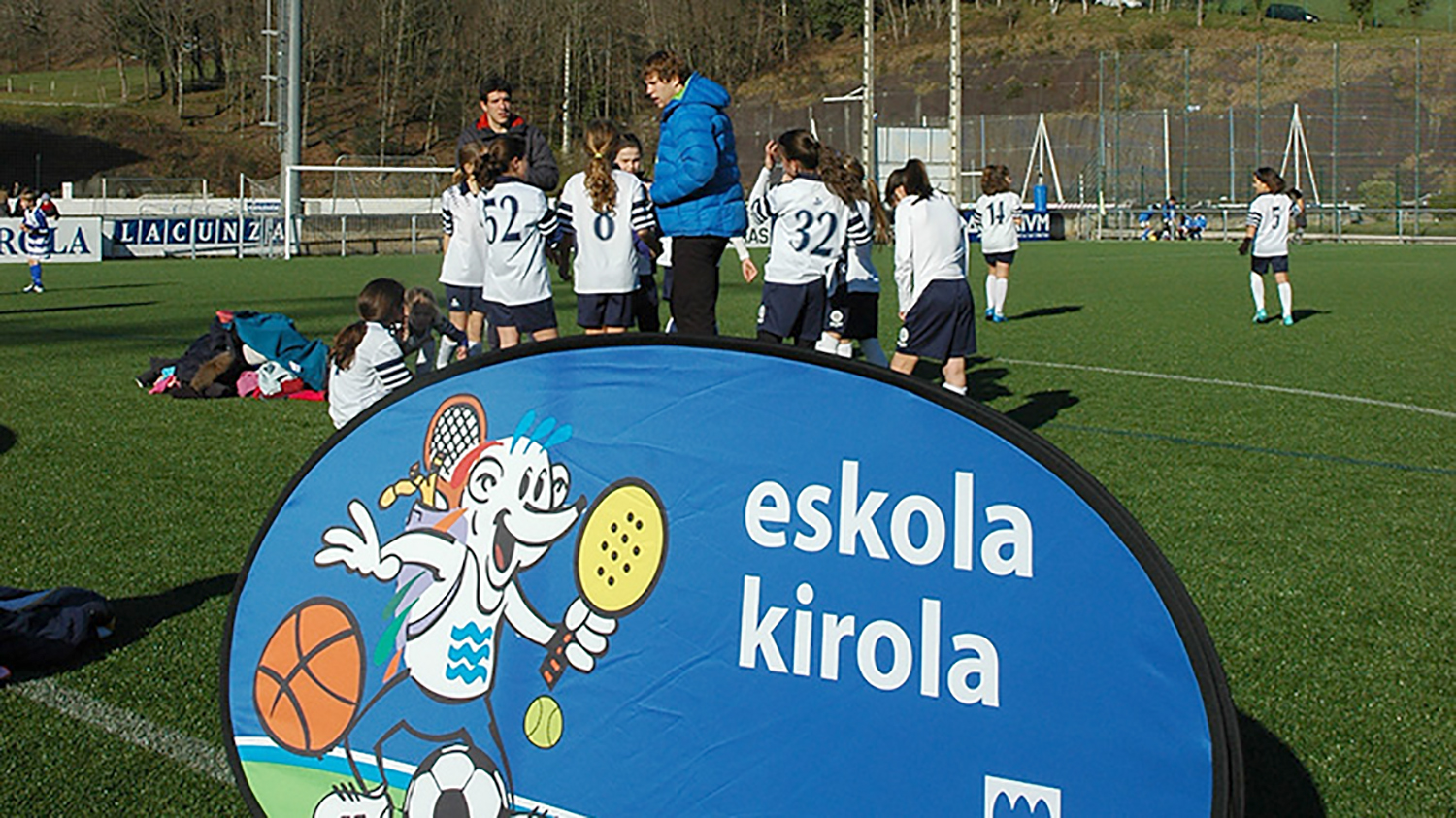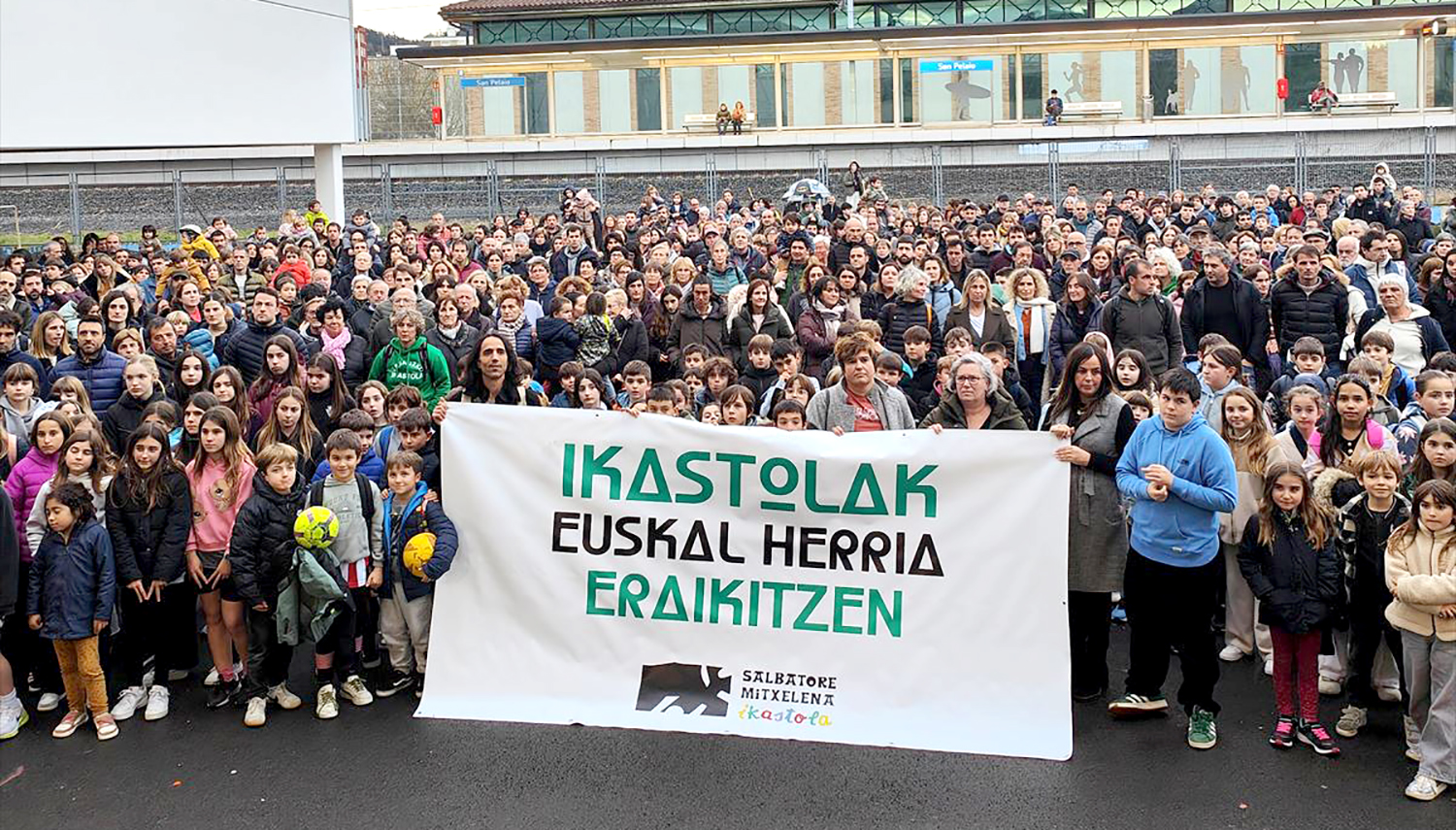More places to stay in Judimendi: Transforming the stigmatized Model A school into a Model D neighborhood school
- The Judimendi public school in Vitoria-Gasteiz has been a segregated school, welcoming students from all over the city, children of families of foreign origin. But in addition to the transition from model A to model D, thanks to the process carried out by the neighborhood to feel the school and attract the families of the neighborhood, they are succeeding in turning the landscape around: the new children enrolled in this course are from the neighborhood, almost half of them have Basque as their home language and the rest of the children are from families of foreign origin. We asked them to tell us the secret.
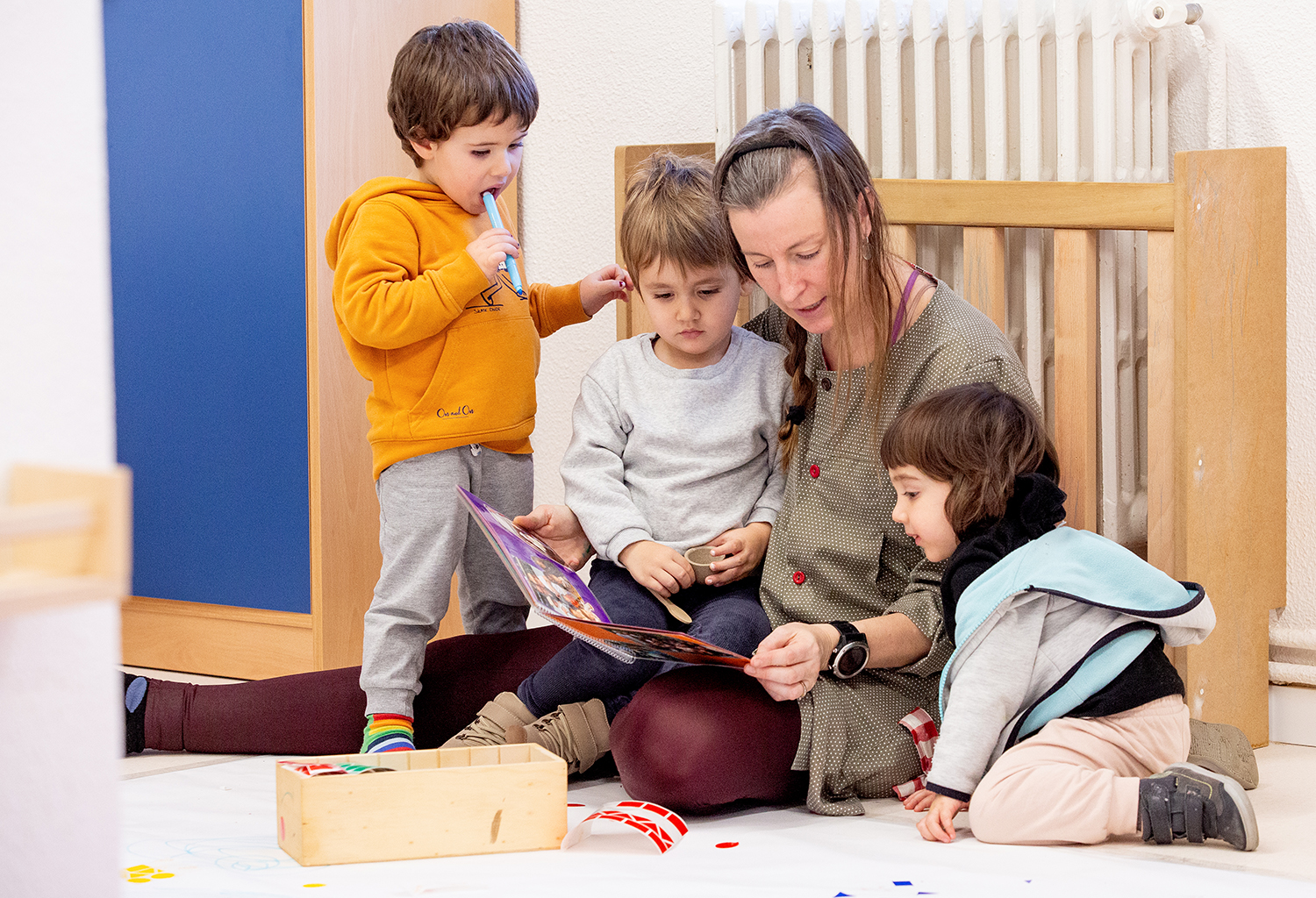
Judimendi is a neighborhood near the center of the city and the school is located in the center of the neighborhood. They show us first the recently renovated and green courtyard, they also tell us that they take advantage of the beautiful park in front of the school, where students take turns outside. They have about 30 students in Early Childhood Education and 119 in Primary Education. They took us from class to class to greet each other, because everyone knows each other, and we immediately inhaled what both parents and teachers have repeated to us: it is a small school, domestic and familiar, that facilitates coexistence and a pleasant environment. It is a widespread prejudice that schools with such diversity are conflictive, but the reality of Judimendi is far from this belief, and when conflicts arise, the intervention is mitigated by the fact that they are small, that they all know each other well – as well as the situation of each one and the backpack that it could bring – and the affective ties between students, teachers and families. It is significant: more and more teachers are demanding to be able to work in Judimendi.
For the first time, children with Basque parents go to Judimendi school. In this course, the 2-year classroom has been expanded to Model D and year after year the Model D will gradually replace Model A until the entire school becomes Model D – that is, when those who are in the 2-year classroom in this course reach the final level of Primary Education, the entire school will be Model D. In this 2-year-old classroom there are 18 children, eight of whom are Basque as their home language, the other ten are children of families of foreign origin. Mario Caminos is a Basque parent and his 2-year-old son has started in Judimendi this year. We asked them if they were afraid and worried about enrolling in the former Model A school: “Our concern has been that our son doesn’t come to school happy, that he doesn’t make friends. For the rest, we found it logical to bring the child to the neighborhood school, and the school reflects the neighborhood reality, the child will see what he sees in the neighborhood even in school, there is no point in sending him to a distant school, which has nothing to do with what he will see later on in the street. In addition, we thought it was nice to be able to come to the school on foot or by bike, and to be able to follow a little time after school eating and playing in or around the backyard.”
"In some schools the language model has changed and everything else has remained the same. We had a clear north: to be a neighborhood school, we had to attract neighborhood families, wake up the school that was sleeping."
So far, the Basque parents of Judimendi have sent their children to schools in other neighborhoods in search of the Basque immersion model, and vice versa, families from other neighborhoods have approached Judimendi in search of the A model. This is changing because, among other things, a group of Basque parents have bet on the school. The militancy? “At least my partner and I haven’t done it to convince anyone, but rather with the conviction that it will be the best for our son, and that’s why we want, among other things, to revitalize the parents’ association,” says Camino. Before taking the step, he mentions that some parents raised concerns, for example regarding living tuition – students who come and go during the school year – and, above all, regarding language and language management. The school professionals clarified the new language project, which we will explain later, and Camino tells us that something strange has happened: In the 2-year class, since some have Basque as their home language and others do not have Basque or Spanish (but Urdu, Arabic, Georgian...), the children have Basque as their meeting point and in their relationship they do not consider Spanish as a crutch because it is not the home language of either of them.
In the case of non-Basque families in the neighbourhood, what were the fears of enrolling their children in the D model school? The most recurring concern is that they will not be able to help their children with their schoolwork because they do not know Basque, “this happened to many in different schools during the pandemic,” says Karina Villalobos, president of the Judimendi parents’ association. In any case, if they explain it, they easily understand that it is for the good of their children, and the Spanish-speaking parents who have enrolled the child in the 2-year class this year have done so consciously, understanding that “my child will learn Basque”. The problem is another, says Karina Villalobos, who arrived in Vitoria from Venezuela five years ago: “When we come from abroad, they don’t explain to us how important Basque is, so we don’t include it that way, and that’s why we think it’s easier to include children in model A; we realize it later. For example, having enrolled my daughters in Judimendi and joined the parents’ association a couple of years later, it was enough of a shock to realize that the level of Basque that their daughters had was not what one would expect. Over the years, I’ve seen many parents leave their older child in Model A and enroll their younger child directly in Model D.”
In the 2-year class, since some have Basque as their home language and others do not have Basque or Spanish as their meeting point, the children have Basque as their meeting point and in their relationship they do not consider Spanish as a crutch.
Parents, the encouragement of each other
As a parent, betting alone or in a group on a school that aims to transform is not the same, the group gives you support, security and strength. That’s why Errotz’s program has been key in this process. Launched last year in Errotz, it has been repeated this year in the light of its success: in the afternoon the Judimendi school offers a gym for children from 0 to 2 years old of the neighborhood and their families. Last year, the families that gathered there then took the step to enroll in the 2-year-old room, which was formed from the relationships interwoven there, and became a space for families to meet, make relationships, share doubts and intentions. “Taking the leap together encouraged us; after all, why are we going to disperse to other neighborhoods and schools with the school in place?” says Camino. They see that their son is happy at school, and they value it a lot “from the doorman to the principal, everyone knows my son’s name, even though he’s just turned years old! In schools with a lot of lines, this is impossible.”
.jpg)
How was the process?
The new current wind has brought about changes in direction three or four years ago. “Not only did we want to change the letter, change it from A to D and that’s it, because in some schools they have changed the language model and everything else has remained the same, even the profile of the students, it has not been a real change, and we had a very clear north: to be a neighborhood school, we had to attract neighborhood families and wake up the school that was sleeping.” Some of the professionals we met told us: Director Amaia Zudaire, head of studies Rakel Pangua, and professors Olarizu López de Briñas and Aitor Idigoras.
Great works have been carried out in the school, such as the renovation and greenery of the courtyard, many methodologically modified materials, interdisciplinary projects are being carried out, in the autonomous movement in Early Childhood Education, the construction of bridges from one stage to another... and open to the neighborhood, as if not, they participate in associations, committees and actions of Judimendi.
They turned to the Ramon Bajo public school in the Old Town of Vitoria-Gasteiz, where a similar process and commitment had been carried out for years, for help and advice. “They gave us a lot of encouragement and it was thanks to them that we realized that we had already taken many steps: that we had a relationship with the neighborhood associations, that we had remodeled the spaces of the school, that we were a small school and that this is a great value... And they made it clear: take care of many attendees so that the school is open, take care of the reception, take care of the coexistence”.
In the afternoon the Judimendi school offers a gym for children aged 0-2 years of the neighborhood and their families. Last year, the room was formed from the relationships that were intertwined there. "Taking the leap together encouraged us"
The Errotz program that we mentioned above is also a replica of the program that Ramon Bajo has. “In our neighborhood we have Basque, Arab, Andalusian families... and the school wants to be a reflection of this diversity. Then this coexistence extends to the neighborhood, or from the neighborhood to the school, and together the children make their way. Many of the keys to education and student success must be sought in these penetrations and relationships. How important it is to nurture these networks,” the teachers told us.
How to implant the D model in such processes? How do you approach the D model with students who have nothing to do with the Basque language? How to manage the theme of language in a school with two models? They have been trained by Amelia Barquín, father of Ramón Bajo, and supported by the Ulibarri de Berritzdía program, among others. Several parents who have enrolled their child in the 2-year Model D classroom also wanted to know how they would manage spaces and languages in the school outside the classroom. “We made it clear to them that the new group that has entered the immersion model will not be in a bubble, they are inside a school, there are many other students, and we have to learn to channel this coexistence among all of them. The language we’ve developed has helped us a lot along the way.” For example, despite being a Model A school, Basque has a presence in the Judimendi school, both in shared spaces and in the parties and actions that they share... and they are gradually increasing this presence consciously with Model A students, mainly linked to orality and understanding. In the daily exchange of students and teachers, for example to ask them to go to the bathroom, in the conversations in the corridor, in the courtyard... they prioritize the Basque language. They have also decided that Model A will be teaching some subjects in Basque (they also have the subject of Physical Education, Plastic, Basque...) and they are collecting all the material and documentation of the center in Basque, gradually changing everything. “At first it was strange for us all to change from Spanish to Basque, but we are getting used to it, and the impact on the students of model A is becoming evident, they are starting to use loose words and expressions in Basque, which until now was unthinkable, among other things because they listen to us in Basque now, because they have a relationship with 2-year-olds in Basque...”
In relation to their attitude towards the Basque language, they have recently passed the questionnaire to the students. “Would you like the teacher to ask you about Basque?” The majority answered no to the question – because they don’t know Basque – but look where, “would you like to know more Basque?” The majority answered yes: 80% of the children and youth of Judith Model A want to know more Basque. “The challenge will be to manage this coexistence from a linguistic point of view as the project takes on the body and as more and more levels of the school are in the D model,” say the teachers.
Focusing on the D model classroom, we have previously said that the profile of the students has left a special situation: the language that unites them is Basque and they turn to Basque to interact with each other, excluding Spanish.
.jpg)
“De-segregating” the school
They are beginning to turn around the segregated and stigmatized school in Judimendi, and they are happy. “The neighborhood of the school is bringing a kind of de-segregation, and we think that’s the way it is: the neighborhood. There are no segregated neighborhoods in Vitoria-Gasteiz; there are wealthier and impoverished neighborhoods, if there is such an imbalance, as it appears, but they would like the schools of these impoverished neighborhoods of Vitoria-Gasteiz to reflect the neighborhood! For example, the schools in Zaramaga are completely segregated, but the reality in Zaramaga is not so harsh; the same in the middle schools.”
Anyway, they want to make it clear: It is the responsibility of the Basque Government to combat segregation, “and they are not doing it.” In fact, we caught them in an exchange with the Department of Education, the day we visited them, in January. Once the course has started, there has been a great flow of students in the classrooms that will still be model A. “There are some maximum limits, but Education does not respect them and the students come, but we do not receive personal and material resources, and even the newcomers often bring their own backpack, academic, emotional, language related...” The teachers denounce that they do not have the support of the Department of Education, neither to profile the places, nor to consolidate some places in Early Childhood Education, nor to respond to the students who arrived during the course... “We have come together very committed teachers, who are working with enthusiasm and enthusiasm, which has allowed us to move this process forward, but such processes cannot or should not remain subject to the will of the professionals of a school”.
"The neighborhood of the school is bringing a kind of de-segregation, and we think that's the way it is: the neighborhood. Even in impoverished neighborhoods, the situation of several schools is more severe, they are not a reflection of the neighborhood"
The living neighborhood
Judimendi is a neighborhood with a strong personality, active and combative, with many associations and movements within Vitoria-Gasteiz. It is a luxury for the school to have such a neighborhood. “Yes, and it is also a luxury for the neighborhood to have a school like ours in it, small, close, in the center, so well connected to the spirit of the neighborhood,” the interlocutors respond. For many years the neighborhood and the school have been turning their backs on each other, and this situation is being reversed. “All the agents in the neighborhood were very happy when we announced the process. We feel a lot of support and we are always ready to participate in the actions and embassies that we are asked for.”
We have been told an anecdote: when they made the doors open to the school, an older man came and explained to them that he did not come with the intention of enrolling anyone, but that he is a neighbor and wanted to know about the school, because until now it was invisible to him. “If there is interest, people in the neighborhood can connect with the school, and a lot of actions and projects can be done around that.”
Mario Caminos and Karina Villalobos are clear about what they are asking the school to do: that their children go happy and enjoy all the advantages of being small and familiar: “There will be few one-line schools here in Vitoria-Gasteiz, enjoy it!” In addition, the teachers assure that they will continue to defend this smallness, that they have no intention of opening more lines and/or becoming a macro center. Professor Aitor Idigoras has also made a final observation, because it is very good to give importance to closeness and coexistence, “but we must proclaim that we also do a good job academically in Judimendi and we prepare students well, because low expectations are common among the most vulnerable students of model A, and they must internalize that they can do a career or whatever in the future, if they want to.”
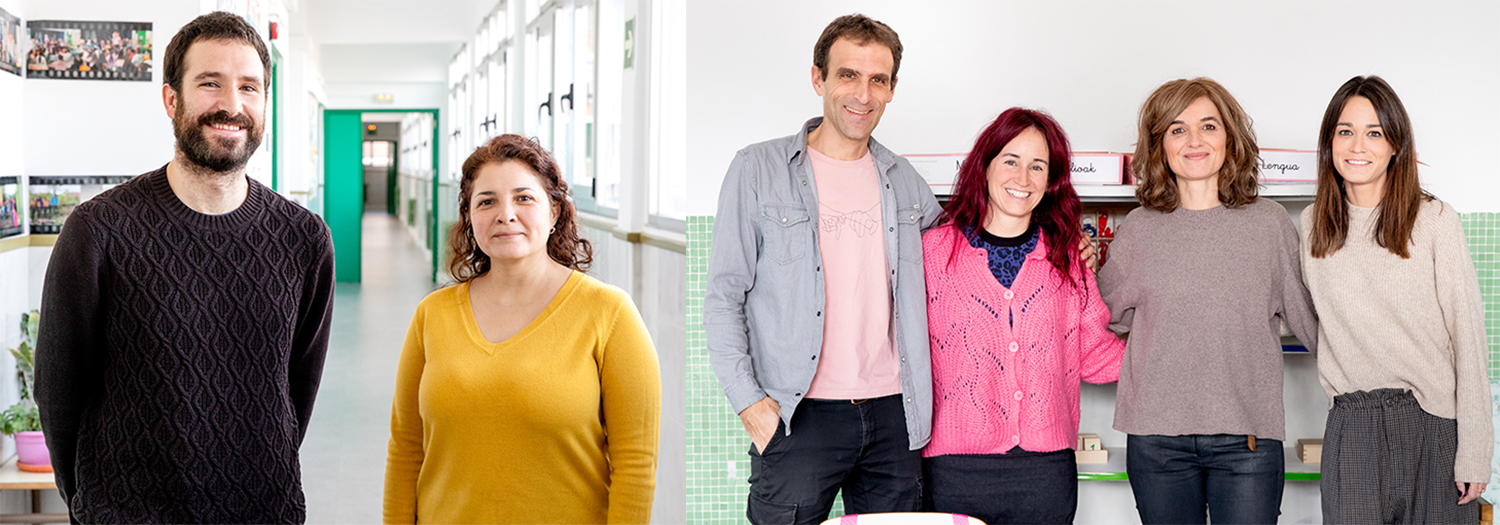
The Department of Education doesn't understand why public employees have gone on strike. He's got to ask the LAB Syndicate. This union signed an agreement with the department in April 2023. Two years later they have also called for a strike because, unlike the previous ones, the... [+]
Erretiratu berri den lankide-ohi baten omenez, Historiako irakaslea. Bejondeizula!
Hezkuntza-legeek azpimarratzen dute zein garrantzitsua den ikasleengan pentsamendu kritikoa sustatzea. Baina irakasle-klaustroak, garai batean ideien eztabaidarako eta proposamenak... [+]
I received your e-mail in personal mail on the strike portals. At first, like many others, I thought it was to let you know what options we have in the face of the strike. But no, the e-mail received was a political and communicative movement against the strike.
I will confess... [+]
And for another year, the unions have organized prefabricated strikes for us. And we, individually, will decide whether or not to join the strike, without the need for any assembly at the school.
The strike model that I was taught is no longer in vogue, it seems. In my... [+]









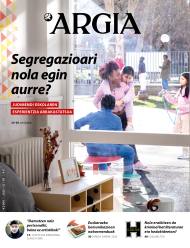


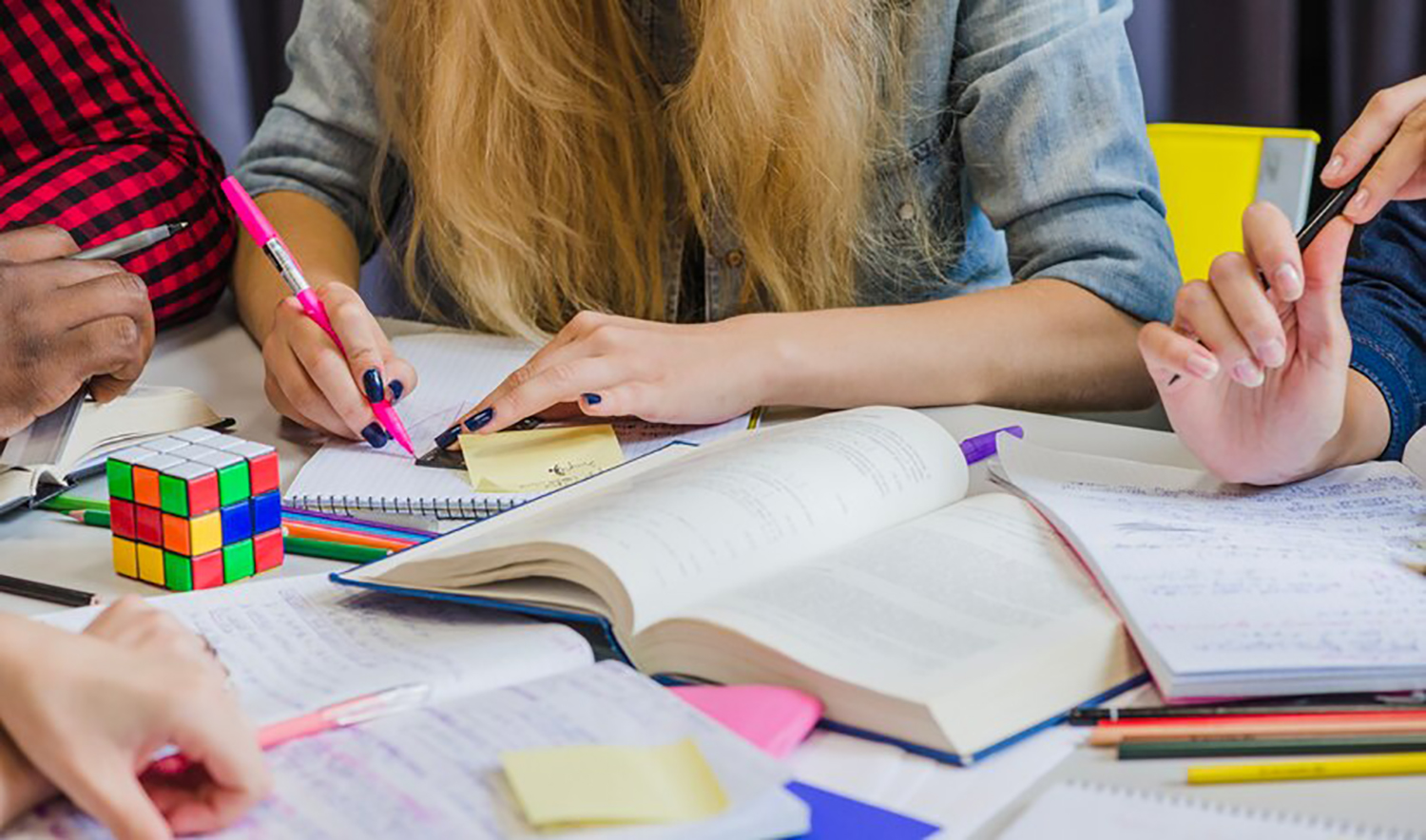

.jpg)
